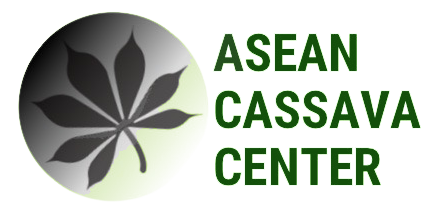Search tag: "cultivation" (remove)
Technology Levels in Cassava Cultivation Alter Phytosociology of Weeds
This study evaluated weed phytosociology under different crop management technologies in cassava production in Rio Grande do Sul, Brazil. Three technology levels were compared: low, medium, and high. Weed density and diversity decreased with increasing technology levels. Predominant species belonged to the Poaceae family, with Cyperus genus prominent in Santa Maria. S-metolachlor application at high technology levels reduced weed frequency and diversity compared to non-chemical control levels.
Download
- March 23, 2024
Cassava mosaic disease in South and Southeast Asia: current status and prospects
Cassava, vital in Asia, Africa, and South America, faces challenges from Cassava Mosaic Disease (CMD), notably in South and Southeast Asia, where Indian and Sri Lankan cassava mosaic viruses prevail. Phytosanitation, vector control, breeding, and genetic engineering are key management strategies discussed in this review, which also covers disease spread and diagnostic advancements.
Download
- March 23, 2024
Biogeochemical cycling of zinc in soil-cassava cropping system in Thailand
Inadequate management in continuous plant production may deplete zinc (Zn) in soils, leading to Zn deficiency in staple foods and human malnutrition in underdeveloped countries. This study assessed Zn dynamics in cassava-grown soils in Thailand, revealing low available Zn levels and varied total Zn stocks. Phyllosilicates, organic matter, and iron oxyhydroxides were primary Zn hosts. Most locations experienced net Zn depletion, emphasizing the urgent need for Zn fertilizer and organic manure to sustain long-term crop production.
Download
- March 23, 2024
Effect of Long-Term Cassava Cultivation on the Morphology and Properties of Soils in Lampung, Southern Sumatra, Indonesia
The study investigates the impact of long-term cassava cultivation (> 20 years) on soil morphology and properties in Lampung, South Sumatra, Indonesia, compared to rarely tilled mixed gardens. Cassava cultivation brightened soil color and altered soil structure, reducing water available pores and organic carbon content while lowering soil pH, CEC, and exchangeable bases. However, base saturation remained unaffected despite changes in exchangeable bases
Download
- March 23, 2024
An assessment of social sustainability of sugarcane and cassava cultivation in Thailand
Sugarcane and cassava, key crops in Thailand, vie for land resources. Social Life Cycle Assessment (S-LCA) was employed to gauge their social impact. Stakeholders like workers, farm owners, machine owners, and the local community were assessed. Key indicators encompassed fair wages, health and safety, working conditions, economic growth, technology access, market security, and employment. Cassava exhibited slightly superior social performance, despite both crops rated highly. Sugarcane, however, is recommended for promotion due to yield and demand expectations, albeit facing challenges.
Download
- March 23, 2024
